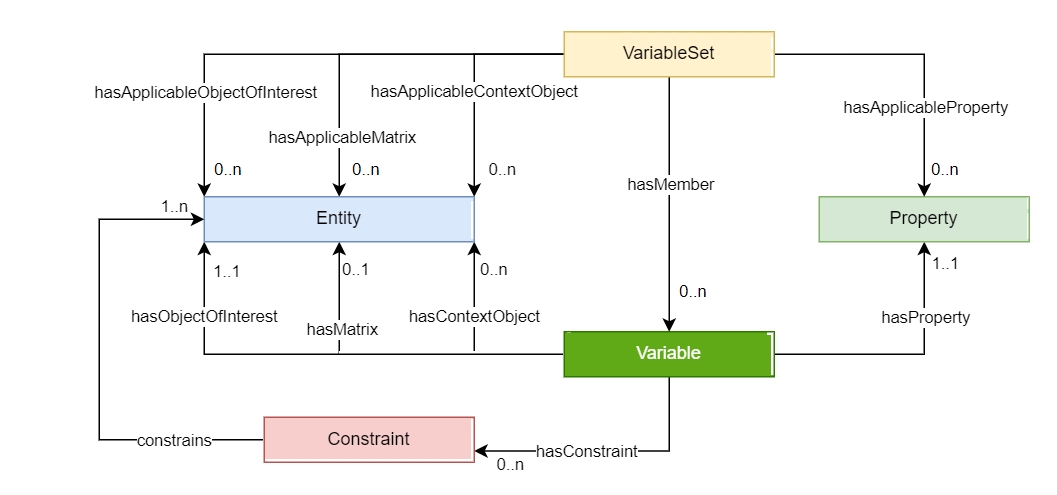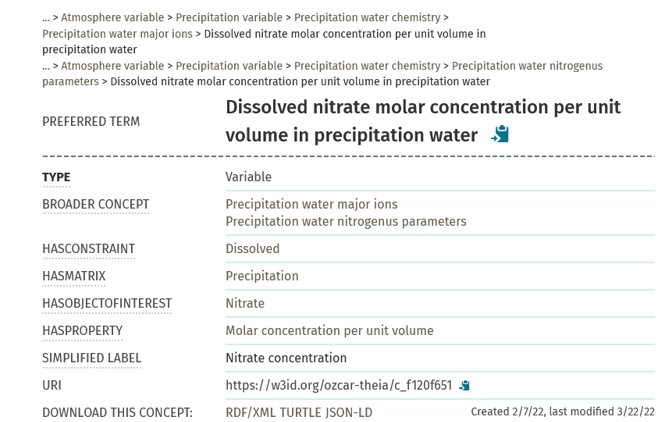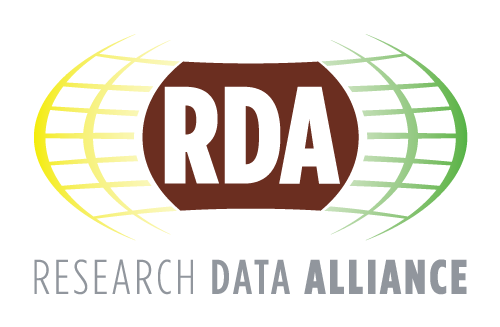InteroperAble Descriptions of Observable Property Terminology WG (RDA I-ADOPT WG)
I-ADOPT in a nutshell
Under the auspices of the Research Data Alliance (RDA) Vocabulary and Semantic Services Interest Group (VSSIG) a small number of semantic experts formed a task group in 2018 to address the interoperability of observational data. The group submitted a case statement to work on the development of a common method to systematically express or represent observable properties in May 2019.
The RDA WG I-ADOPT was officially launched in 2019 and has 131 members. The WG completed its 18-month workplan in 2021.
Find here all performed tasks and their outputs:
Task 1: Collect user stories and formalise them into use cases (November 2019 - February 2020)
Task 2: Survey existing observation-centric terminologies (January 2020 - February 2020)
Task 3: Derive use case requirements (March 2020 - April 2020)
Task 4: Analyse semantic representation of Observable Properties against requirements (May 2020 - October 2020)
Task 5: Develop the Interoperability Framework (November 2020 - April 2021)
Task 6: Test local mapping design patterns (May 2021 - September 2021)
The I-ADOPT recommendations were finalized in January 2022 and endorsed by RDA in April 2022 (DOI: 10.15497/RDA00071). The Working Group is in maintenance mode, but is still active in refining the I-ADOPT Framework and helping with its implementation. You can contribute to this Working Group by submitting your own variables, submitting your questions and working with us in our recurring meetings.
I-ADOPT WG Chairs
Barbara Magagna (GO FAIR Foundation, NL)
Gwenaëlle Moncoiffé (National Oceanography Centre - British Oceanographic Data Centre, UK)
Anusuriya Devaraju (CSIRO, AU)
Maria Stoica (University of Colorado, Boulder, US)
Part of the I-ADOPT core group:
Sirko Schindler (German Aerospace Center, DLR, DE)
Alison Pamment (Centre for Environmental Data Analysis/Sience and Technology Facilities Council, UK)
Overview of I-ADOPT RDA Plenary sessions
11 RDA Plenary meeting in Berlin (March 2018): Task group formed under Vocabulary Semantic Service Interest Group (VSSIG), presentation
13 RDA Plenary meeting in Philadelphia (April 2019): BOF- Harmonising FAIR descriptions of observational data, Session Minutes
14 RDA Plenary meeting in Helsinki (Oktober 2019): Kick-Off Meeting of I-ADOPT, Session Minutes
15 RDA Virtual Plenary meeting (March 2020): Working Session Minutes
16 RDA Virtual Plenary meeting (November 2020): Working Session Minutes, recording
17 RDA Virtual Plenary meeting (March 2021): Working Session Minutes, recording
In March 2021 we had two I-ADOPT workshops testing and further developing the I-ADOPT Interoperability Framework: Workshop I minutes, Workshop II minutes
Virtual SciDataCon 2021 (October 2021): Enabling data interoperability through the I-ADOPT Framework: implementation scenarios in the environmental science domain and beyond, session description, recordin
18 RDA Virtual Plenary meeting (November 2021): Closing Session Minutes, recording
20 RDA Virtual Plenary meeting (March 2023): Practical implementations of the I-ADOPT Framework Session Minutes, recording
22 RDA Virtual Plenary meeting (May 2024): Embeddings of I-ADOPT in existing standards Session Minutes, recording
23 RDA RDA Plenary Meeting San José (hybrid) (November 2024): Challenging I-ADOPT Session Minutes, recording
Main Outcomes
The I-ADOPT Framework Ontology is a lightweight ontology primarily designed to facilitate interoperability between existing variable description models (including ontologies, taxonomy, and structured controlled vocabularies).

In 2023 we extended the ontology to support the aggregation of variables using a range of user-defined coarser concepts to facilitate dataset discovery and aggregation into products.

The I-ADOPT Catalogue of Terminologies contains concepts from terminologies to compose semantic variable descriptions.
The Step-by-Step guide was created to support in the description of new variables.
An Example
Applying the I-ADOPT Framework means:
- decompose the variable in atomic components
- assign a description role for each component
- annotate each component with concepts from terminologies

This I-ADOPT decomposition and annotation exercise should result in a variable concept with its associated concepts in a SKOS vocabulary:

See here the variable represented as SKOS concept from the Theia/OZCAR Thesaurus.
